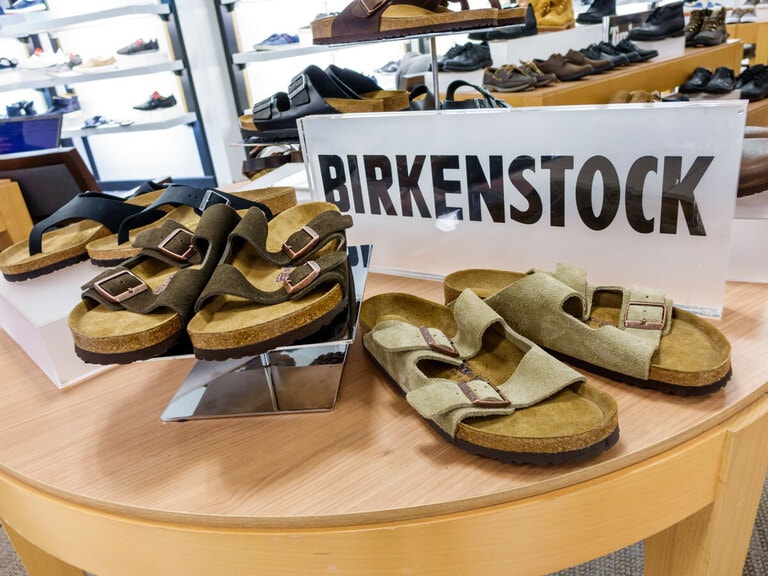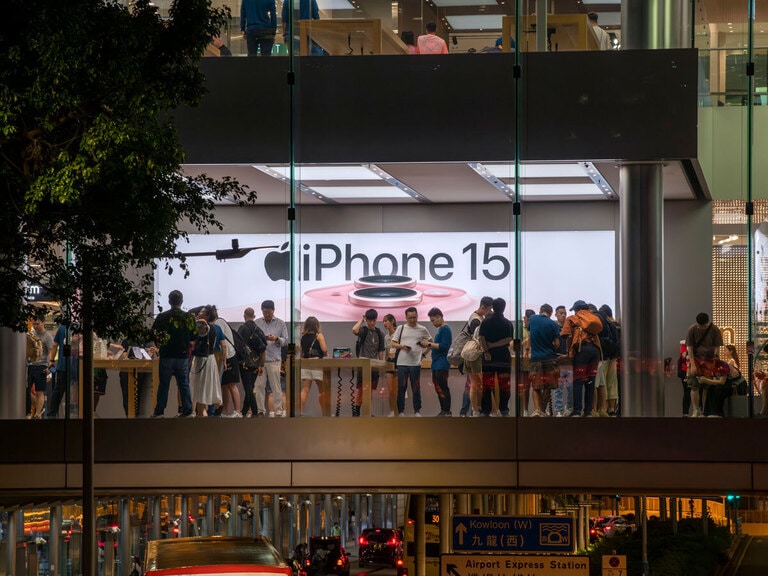In August shares in Singapore-based Sea dropped almost 30% in one day following a quarterly earnings miss, but the share price has recovered in the last month, buoyed by the news that Indonesia has banned social commerce sales.
- Indonesia’s social commerce ban could help Sea-owned Shopee to grow its share of total online sales in the country.
- Consumer wariness means social commerce forecast to account for just 7% of total online sales in the US by 2025.
- How to invest in social commerce: the ProShares Online Retail ETF is down 4.5% in the past six months.
Indonesia formally announced a crackdown on goods being sold through social media last week.
Social media advertising mustn’t be transactional, and social media apps and platforms “can’t open shop, can’t directly sell”, in the words of Indonesia’s Trade Minister Zulkifli Hasan.
The regulation is designed to protect the country’s small businesses. Although Indonesian government officials didn’t name any company directly, the country is Chinese-owned TikTok’s second-biggest market after the US, with 125 million users. Indonesian shoppers have spent more money through TikTok than anywhere else in the southeast Asia region over the past year, to the detriment of the country’s local vendors.
Clothing seller Hendri Tanjung has seen his revenue plummet 80% over recent months, he told France24. He said that sellers on TikTok are undercutting local businesses: “I don't know where they source their products to sell at such low prices. Ours are our own products and we cannot sell them at that price.”
Social commerce platforms had a week to comply with the regulations, after which those who flouted it could have their licences to trade in Indonesia revoked, reported the Guardian.
For TikTok, the only platform that allows users to purchase products in-app without having to be redirected, the regulation means the company will have to separate its shopping function from its main video-scrolling service.
Shares in Shopee-Owner Sea Surge
While TikTok was dealt a major blow, shares in Sea [SE] surged 22.2% in the trading week commencing 25 September. The Singapore-based company owns Shopee, the e-commerce market leader in Indonesia, and investors are hoping that the curbs placed on social commerce will weaken TikTok Shop’s growing market share, forcing shoppers to turn elsewhere.
According to a Statista survey on Indonesian consumers’ online shopping trends conducted earlier this year, Shopee accounts for approximately 51% of the country’s e-commerce transactions. GoTo’s [GOTO.JK] Tokopedia is second, with a 22% share, while TikTok Shop accounts for 11% of the market, and Alibaba’s [BABA] Lazada has an 8% share.
Bloomberg Intelligence analyst Nathan Naidu believes that TikTok’s monthly active user base could be impeded, and that Shopee, Tokopedia and Lazada “should be better able to defend [their gross merchandise volume] share in Indonesia” as a result.
All eyes are now likely to be on whether other countries will follow Indonesia in reining in social commerce, and TikTok’s shopping ambitions — especially the US, which sees the platform as a potential threat to national security.
Pinterest as a Shopping Destination
To fend off growing competition from TikTok in the US, Amazon [AMZN] rolled out a TikTok-like feed of shoppable content, where users are shown photos and videos of products they might like, based on their order history.
Elsewhere, Pinterest [PINS] also seems to be making in-roads into the US social commerce market, announcing during its first-ever investor day on 19 September that more than half of its users see the app as a shopping destination. The number of buyable items that users have saved to Pinterest boards has grown 50% year-over-year.
“We’ve made Pinterest more shoppable by enabling people to shop and buy across all surfaces of our platform,” stated the company in a press release.
Consumers Wary About Placing Trust in Social Commerce
Back in August 2010, Meta [META] CEO Mark Zuckerberg declared: “If I had to guess, social commerce is the next area to really blow up.”
Since then, social commerce has arguably failed to take off for Meta, with the company shuttering its Facebook live shopping feature in October. However, it announced in September that shops on Facebook and Instagram will no longer be able to redirect users away from the apps in order to complete a purchase.
Even if Meta does have eventual success with social commerce, growth may be held back by consumers being wary of placing trust in the channel. A quarter of shoppers are worried that they’ll never receive an order, while 40% have concerns about how their payment information will be stored, according to market research agency Mintel. Social commerce is expected to account for just 7% of all US ecommerce sales by 2025, up from 5% in 2022, the firm has forecast.
“This doesn’t mean that social commerce has reached a dead end for the US consumers. It will just take time for shoppers to adjust and adapt to this new way of shopping,” said Katie Hansen, Senior Analyst of Retail and E-commerce at Mintel.
Generative AI Will Improve the Brand Experience
Consumers are likely to warm to social commerce as more brands embrace the format and transition away from traditional e-commerce channels.
Going forward, technologies like generative artificial intelligence and natural language processing should improve the social commerce experience by enabling consumers to engage in real-time conversations with their favourite brands, increasing the likelihood that they’ll make a purchase.
Augmented reality and virtuality should also make the experience more immersive; hardware could become more accessible as costs come down.
How to Invest in Social Commerce
ETFs, or exchange-traded funds, offer an economical and diversified way to invest in a variety of stocks within a particular theme.
Funds in Focus: the ProShares Online Retail ETF
The ProShares Online Retail ETF [ONLN], which has Sea in its top 10 holdings, has allocated 79.5% of its portfolio to consumer discretionary, followed by media and entertainment (4.6%) and healthcare equipment and services (4%), as of 3 October. The fund is down 6.9% in the past year and down 4.5% in the past six months.
The Global X E-commerce ETF [EBIZ], which also holds Sea, had allocated 69.9% of its portfolio to consumer discretionary, as of 30 September. Communication services and information technology have allocations of 11.4% and 10.2% respectively, while industrials and financials have weightings of 7.4% and 1.2%. The fund is up 6.7% in the past year and down 2.2% in the past six months.
The EMQQ Emerging Markets Internet & Ecommerce UCITS ETF [EMQQ] doesn’t offer a sector breakdown. The fund is up 2.1% in the past year and down 9.6% in the past six months.
Disclaimer Past performance is not a reliable indicator of future results.
CMC Markets is an execution-only service provider. The material (whether or not it states any opinions) is for general information purposes only, and does not take into account your personal circumstances or objectives. Nothing in this material is (or should be considered to be) financial, investment or other advice on which reliance should be placed. No opinion given in the material constitutes a recommendation by CMC Markets or the author that any particular investment, security, transaction or investment strategy is suitable for any specific person.
The material has not been prepared in accordance with legal requirements designed to promote the independence of investment research. Although we are not specifically prevented from dealing before providing this material, we do not seek to take advantage of the material prior to its dissemination.
CMC Markets does not endorse or offer opinion on the trading strategies used by the author. Their trading strategies do not guarantee any return and CMC Markets shall not be held responsible for any loss that you may incur, either directly or indirectly, arising from any investment based on any information contained herein.
*Tax treatment depends on individual circumstances and can change or may differ in a jurisdiction other than the UK.
Continue reading for FREE
- Includes free newsletter updates, unsubscribe anytime. Privacy policy






